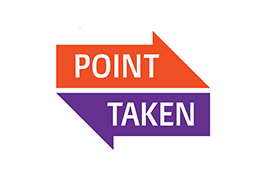May 31, 2016
5/31: Should Prostitution Be Legalized?
Point Taken/Marist National Poll
Americans divide over whether or not prostitution should be legal, according to an Exclusive Point Taken-Marist Poll, commissioned by WGBH Boston for its new late-night, multi-platform PBS debate series Point Taken. A majority of men agree it should be legal and think permitting prostitution under the law would allow it to be regulated. Just fewer than half of women believe prostitution should not be legal, and they divide over whether legalization will lower risks or endanger women. Little consensus exists regarding the legal ramifications for the sex worker or the client. On most of these questions, opinion differs based on gender and age.
 The national survey was conducted by The Marist Poll in advance of this week’s Point Taken episode, airing Tuesday, May 31st at 11pmET (check local listings) and streaming on pbs.org/pointtaken. The series is hosted by Carlos Watson, Emmy Award winning journalist and OZY Media co-founder and CEO.
The national survey was conducted by The Marist Poll in advance of this week’s Point Taken episode, airing Tuesday, May 31st at 11pmET (check local listings) and streaming on pbs.org/pointtaken. The series is hosted by Carlos Watson, Emmy Award winning journalist and OZY Media co-founder and CEO.
 Nearly half of U.S. residents, 49% report prostitution between two consenting adults should be legal while 44% disagree. Men, 54%, and residents under 45 years old, 58%, are more likely than women, 44%, and older residents, 40%, to believe prostitution should be permissible under the law.
Nearly half of U.S. residents, 49% report prostitution between two consenting adults should be legal while 44% disagree. Men, 54%, and residents under 45 years old, 58%, are more likely than women, 44%, and older residents, 40%, to believe prostitution should be permissible under the law.
A majority of Americans, 53%, including more than one in five Americans who oppose legalizing prostitution, 22%, say sanctioning prostitution will provide regulations and minimize the risk. 39% say permitting prostitution will worsen the problem and endanger more women. A gender gap also exists here. Men, 60%, are more likely than women, 47%, to think legalization will increase the potential safeguards. Women divide with 45% reporting that legalization will worsen the problem and put a greater number of women in danger.
With regard to the appropriate level of punishment for the involved parties, about six in ten Americans oppose criminal prosecution. 63% report the person who sells sex for money should not receive any penalty, 33%, or should just pay a fine, 30%. 29% think the sex worker should face criminal charges. Similarly, 60% of Americans say the individual who pays for sex should not receive any punishment, 31%, or should pay a fine, 29%. 33% believe the client should be criminally charged.
Men are more likely than women to assert that no penalty is necessary for either the sex worker or the client. Still, only about one in three women think prostitutes and their clients deserve criminal prosecution. Looking at age, Americans 45 years of age or older are more likely than younger residents to say the two parties should be charged. On both of these questions, about four in ten residents who oppose legalizing prostitution say criminal prosecution is not the appropriate punishment.
“Tonight’s Point Taken will follow up on this exclusive poll,” says Denise DiIanni, series creator and Senior Executive-In-Charge. “The results are dramatic, with significant differences in how men and women view questions of the legalization of sex work.”
Close to six in ten Americans, 59%, say they would be bothered, at least a little, if their neighbor were a sex worker. This includes a plurality, 38%, who expresses a great deal of discomfort with that notion. Even 43% of residents who support legalizing prostitution would be bothered, at least a little, if their neighbor was a sex worker. Of note, 51% of men say they would not be bothered at all if their neighbor sold sex for money. In contrast, 51% of women report they would be very uncomfortable with that situation.
This survey of 516 adults was conducted May 24th and May 25th, 2016 by The Marist Poll sponsored and funded in partnership with WGBH’s Point Taken. Adults 18 years of age and older residing in the contiguous United States were contacted on landline or mobile numbers and interviewed in English by telephone using live interviewers. Results are statistically significant within ±4.3 percentage points. The error margin was not adjusted for sample weights and increases for cross-tabulations.
Complete May 31, 2016 USA Exclusive Point Taken – Marist Poll Release

